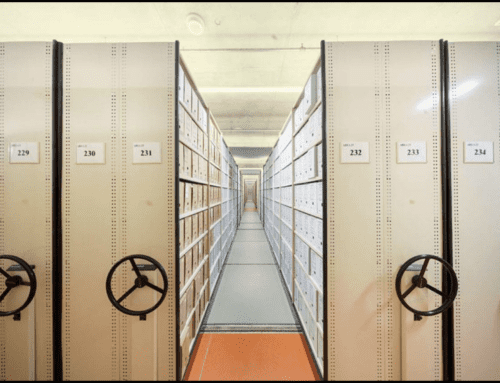MICHELLE FAHY
Global weapons giant Lockheed Martin – which has deleted from its website details about Australia’s key role in building F-35 fighter jets – has long had deep ties to the Australian Government, investigations show.
Analysis shows a remarkable “revolving door” of people between top government and Defence Department roles and the world’s largest weapons manufacturer, whose F-35 fighter jets Israel is using to bomb Gaza.
The revolving door between government and corporations is well documented as a factor helping to undermine democracy.
In 2022, Lockheed Martin’s total global revenue was US$66 billion, with 90 per cent of it (US$59.4 billion) from the sale of arms.
Some of Australia’s most senior government officials, military officers, and Defence Department staff have been appointed to Lockheed Martin Australia’s board or have served as its chief executive or in other positions in recent years.
Appreciate our quality journalism? Please support us for as little as $10 a month

Lockheed Martin recently quietly deleted details of Australia’s involvement in building the global F-35 fleet. Source: The Klaxon
Revolving door between Australian government and Lockheed Martin
Lockheed’s current CEO for Australia and New Zealand, retired Air Marshal Warren McDonald, officially joined the weapons maker’s ANZ leadership team as chief executive elect on July 1, 2021 having exited his 41-year career in the Royal Australian Air Force (RAAF) just seven months earlier. McDonald formally commenced as Lockheed’s local CEO in November 2021.
McDonald was deputy chief of the RAAF until mid-2017 when he was promoted into a new role as the Defence Force’s inaugural Chief of Joint Capabilities, a group comprising space, cyber and the defence networks tasked with preparing space and cyber power, and logistics capabilities, to serve the modern integrated defence force.
When later asked what had interested him about joining Lockheed Martin, McDonald said: “From all domains – space to the sea floor – Lockheed Martin has in its hands the combat capability of the Defence Force”.
“Lockheed Martin has in its hands the combat capability of the Defence Force” – Warren McDonald
Another high-level revolving door transfer into Lockheed was former chief of the RAAF, Geoff Brown, who departed his 35-year military career in July 2015 and joined Lockheed Martin Australia’s board a year later where he remained for more than five years.
The long list of significant Lockheed appointments also includes:
- Former opposition leader and Labor defence minister Kim Beazley, who was on Lockheed’s Australian board for almost two years between serving as Australia’s ambassador to the US and his role as Governor of WA. After his governorship ended on June 30, 2022, Beazley returned to working with Lockheed Martin as an adviser.
- Retired air vice-marshal Neil Hart, a former deputy chief of the RAAF (2011-12), who is now a strategic adviser to Lockheed, and Rod Drury, a former long term RAAF officer, the international vice president of Lockheed Martin Space.
- Allan Hawke, a former secretary of the Defence Department and chief of staff to prime minister Paul Keating, and retired vice admiral Chris Ritchie, a former chief of the Royal Australian Navy (RAN), who were on Lockheed’s Australian board together for more than six years, from October 4, 2013 to January 31, 2020.
- Former Coalition Immigration Minister Amanda Vanstone was on the board of Lockheed Martin Australia for three years, from December 2018.
- Rear admiral Raydon Gates, who retired from the RAN in late 2008 after a career spanning 40 years. In early 2011 he was appointed Lockheed’s Australian chief executive, a position he retained until January 2017. He was succeeded in the role by Vince di Pietro, who had retired from the RAN in March 2016, also after serving 40 years. Di Pietro joined Lockheed in August 2016, just five months after leaving the RAN. He was Lockheed’s CEO from January 2017 until April 2019.
- Jimmy Kiploks, who was prime minister Scott Morrison’s principal policy adviser from September 2018 to May 2022 on matters associated with the defence and home affairs portfolios, and before that a senior adviser to defence ministers Kevin Andrews and Marise Payne, according to his LinkedIn profile. Kiploks joined Lockheed Martin in November 2022, with responsibility for its business growth and strategy.
- Dr Tony Lindsay, one of Australia’s most eminent defence scientists. Lindsay had worked at the Defence Science and Technology Group (DSTG) for 28 years. On October 28, 2016, he left DSTG; a few days later, on November 1, he commenced work with Lockheed Martin in Melbourne as director of its brand new STELaRLab, Lockheed’s first research and development lab outside the US. Lindsay had spent eight years as chief of the National Security and Intelligence, Surveillance and Reconnaissance Division, reporting to the Chief Defence Scientist and through him to the secretary of the Defence Department.So closely intertwined are the interests of the Australian government with the multinational arms companies that the then Defence Minister, Marise Payne, publicly applauded Lockheed’s decision to employ Dr Lindsay in a media release, saying: “Dr Lindsay will bring a wealth of knowledge and insight into his new role.”
Multinational weapons companies were brought into the heart of the Defence Department’s policymaking and procurement decisions following significant policy changes during the past decade, including the formal designation of defence industry as a ‘fundamental input to capability’ (FIC). In addition, the 2015 First Principles Review disbanded the semi-autonomous government arms-buying agency, the Defence Materiel Organisation (DMO), and replaced it with the Capability Acquisition and Sustainment Group (CASG), which is now part of the Defence Department.
Senior appointments at CASG highlight how the revolving door can channel people in both directions. The three deputy secretaries appointed by the Defence Department to lead CASG – still colloquially known as the government’s chief arms buyer – were all appointed straight from leadership roles with weapons manufacturers: Kim Gillis from Boeing Defence; Tony Fraser from Airbus; and current incumbent Chris Deeble from Northrop Grumman. Before their arms industry leadership roles, each had worked for the federal government in senior defence positions. Before that, Fraser and Deeble had been in the military.
Movements through the revolving door are not illegal. The Klaxon is not implying illegal activity by any person mentioned in this article nor by Lockheed Martin. The issue being scrutinised is the perfectly legal ability of powerful corporations to gain access to decision-makers at the highest levels via senior revolving door appointments such as these.
Michelle Fahy is an independent investigative reporter on the weapons industry and its close connections with the Australian government. All her work is available at https://undueinfluence.substack.com/
BEFORE YOU CLICK AWAY: As you can see from the above, truly independent, quality journalism is vital to our democracy. Please support us here for as little as $10 a month
Help us get the truth out from as little as $10/month.
Unleash the excitement of playing your favorite casino games from the comfort of your own home or on the go. With real money online casinos in South Africa, the possibilities are endless. Whether you’re into classic slots, progressive jackpots, or live dealer games, you’ll find it all at your fingertips. Join the millions of players enjoying the thrill of real money gambling and see if today is your lucky day!
The need for fearless, independent media has never been greater. Journalism is on its knees – and the media landscape is riddled with vested interests. Please consider subscribing for as little as $10 a month to help us keep holding the powerful to account.







